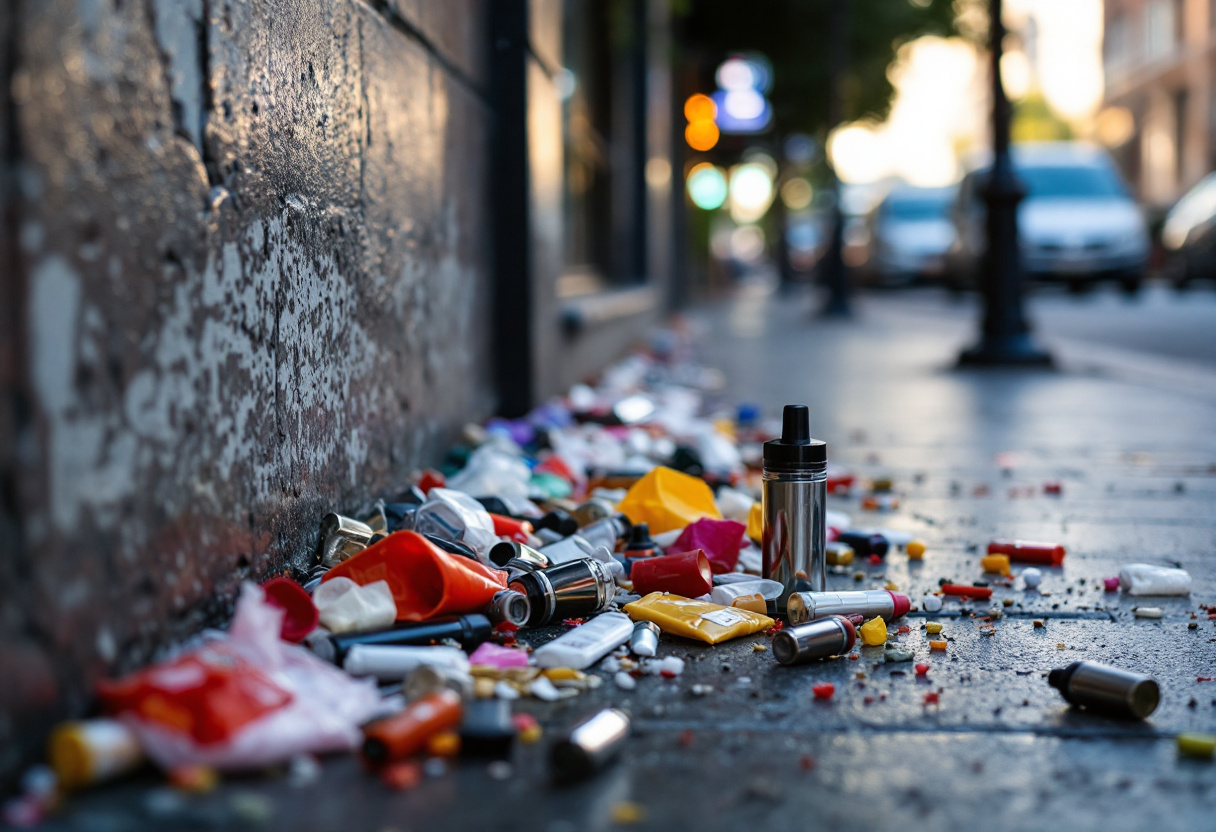Table of Contents
In recent years, the popularity of disposable vapes has skyrocketed, especially among younger generations. With an estimated five million of these devices discarded weekly in the U.K. alone, the environmental implications are staggering. This trend is not just confined to the U.K.; countries like Canada are witnessing similar patterns, with disposable vapes becoming the most common e-cigarette choice among youth.
But what many users fail to realize is that these seemingly harmless devices are packed with valuable materials that contribute to significant environmental waste.
The hidden costs of disposable vapes
Disposable vapes contain rare earth metals and lithium batteries, which are essential for various technologies, including electric vehicles.
According to Material Focus, the batteries from the vapes thrown away in the U.K. in 2022 could power at least 5,000 electric vehicles. This shocking statistic highlights the wastefulness of single-use vapes and raises questions about our consumption habits.
Chris Doel, a 25-year-old engineer, has taken it upon himself to address this issue. He began collecting discarded vapes, realizing that the battery cells inside were strikingly similar to those used in e-bike batteries. His innovative approach not only aims to reduce waste but also showcases the potential for reusing these materials.
Innovative solutions to e-waste
Doel’s journey into the world of e-waste recycling began with a simple curiosity about the components of disposable vapes. After testing and repurposing the batteries, he successfully created a homemade e-bike battery, costing a fraction of commercial models.
However, he emphasizes that this project is not merely about saving money; it’s about raising awareness regarding the environmental crisis posed by e-waste. With the U.K. set to ban single-use vapes in 2025, Doel hopes to inspire others to consider reusable alternatives and rethink their consumption patterns.
The broader implications of vape waste
Experts like Mark Miodownik, a professor at University College London, argue that the issue of vape waste is part of a larger environmental crisis. The current economic model often overlooks the pollution and environmental damage caused by disposable products. Miodownik advocates for a circular economy where materials are reused, repaired, or reduced in consumption. As the vape ban approaches, innovators like Doel are racing against time to develop sustainable solutions that can mitigate the impact of e-waste. His vision includes creating a powerwall from hundreds of discarded vapes, potentially connected to solar panels to power his workshop or home.
As the conversation around sustainability grows, it’s crucial for younger generations to understand the implications of their choices. The rise of disposable vapes serves as a reminder of the importance of responsible consumption and the need for innovative solutions to combat e-waste. By embracing a more sustainable lifestyle, we can contribute to a healthier planet and pave the way for a future where technology and environmental responsibility coexist.




